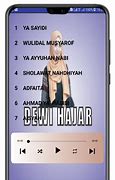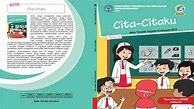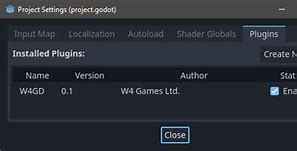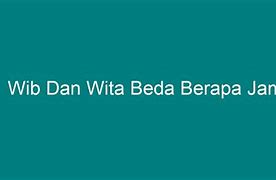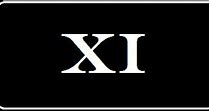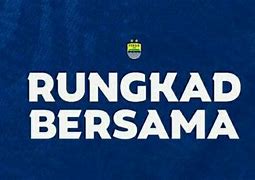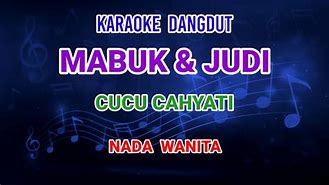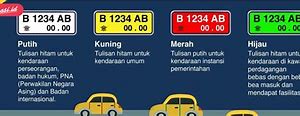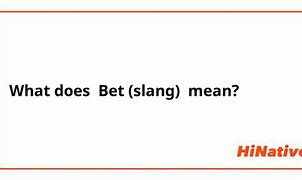
Slang word juga banyak ditemui di tes IELTS
Walau slang bahasa Inggris digunakan secara informal, namun slang word juga banyak ditemui di ujian IELTS.
Untuk tes IELTS slang word bisa ditemui di sesi speaking dan juga writing.
Dalam ujian IETS penggunaan slang word bisa menjadi salah satu penilaian karena dapat menampilkan kekayaan kosakata bahasa Inggris yang kamu kuasai.
Semakin dekat bahasa Inggrismu menyesuaikan native speaker maka kemungkinan nilai tinggi juga bisa didapatkan.
Namun penggunaan nya juga harus melihat siapa orang dalam percakapan dan jenis situasinya.
Geographic distribution
Indonesian slang language is mostly spoken in urban regions of the Indonesian archipelago. It also spoken in some Indonesian soap operas and animated television series (such as Tukang Ojek Pengkolan or Adit Sopo Jarwo). Variations of slang language can be found from city to city, mainly characterised by derivatives of the different local ethnic languages. For example, in Bandung, West Java, the local slang language contains vocabulary from the Sundanese language, while the slang found in Jakarta tends to be heavily influenced by English or the old Batavian dialect (i.e. the language of the original inhabitants of Jakarta or Batavia as it was known during the Dutch colonial period). For more information relating to the geographic distribution of Indonesian slang and regional influences, please see "Region Specific Slang" below.
Indonesian slang language is not an official language of Indonesia. However, it is claimed as a modified form of the Indonesian language and is widely used for everyday communication and in informal situations. Sometimes it is mixed with formal Indonesian in formal situations, except during state ceremonies, business meetings, and sacred prayers. A number of Indonesians sometimes speak a mixture of Indonesian slang and formal Indonesian in everyday conversation and informal situations.
Indonesian slang generally uses the same pronunciation as standard Indonesian, although there are many influences from regional dialects on certain aspects such as accent and grammatical structure. Loan words adopted from foreign languages (especially European) such as English or Dutch are often transliterated according to the modern Indonesian orthography. For example, the word "please" is often written as plis. Another closely related phenomenon to arise in recent years is the formation of complex nouns or phrases created using a combination of English and Indonesian (slang) in the one sentence. A prime example of this is the phrase "so what gitu loh!", meaning "who cares?!" or quite simply "so what!" with added emphasis from the phrase "gitu loh". Gitu is an abbreviated form of the Indonesian word begitu meaning 'like that/such as', while loh (also spelt lho) is a particle commonly used in slang or conversational Indonesian to show surprise or instigate a warning. In these cases of combined, interlingual phrases, the original spelling (and quite often the pronunciation) of the foreign word(s) are retained. Hence, the English component of the Indonesian slang phrase "so what gitu loh!" remains relatively unchanged as far as spelling and pronunciation are concerned.
The overall structure of Indonesian slang is not all that different from formal Indonesian, although in many cases sentences are simplified or shortened when necessary. The differences between formal and colloquial Indonesian are most evident in vocabulary and grammatical structures (e.g. affixes).
The structure of the Indonesian slang language is mostly derived from formal Indonesian. However, its vocabularies are different story altogether. Indonesian slang vocabularies are enriched by a combination of derivatives or loan words/structures from foreign languages such as Min Nan commonly referred to as Hokkien, English, and Dutch, as well as local ethnic languages such as Batavian, Sundanese, and Javanese. However, in many cases, new words are simply created at random and their origins often quite obscure.
A large proportion of the vocabulary used in Indonesian slang language was developed from formal Indonesian through several methods,[5] most of which are listed below:
Some words are simply loaned from English. For example:
Some words are also loaned from Chinese languages (mainly Hokkien and Mandarin). For example:
Some words originated from the LGBT community (especially among transvestites) usually have word ending -ong. This either come from the pattern of changing the vocal of the penult into [ɛ] and replacing the rime of the ultima with -ong, or entirely different origin. This was also an attempt among LGBT community to alter the words to become more "French-sounding", thus sounding more sexy.[citation needed] For example:
Many words also emerged without following the above rules at all or have their own unique history and/or origin not related to its literal meaning. For example:
Some of these slang words have also evolved into pejorative words.
Many slang modal particles are used in the end of a sentence. Usually, these particles do not directly change the sentence's meaning, in the sense that the truth conditions remain the same. However, they can have other effects, such as emphasizing a sentence, or suggesting hesitancy. They can be used to reinforce the social link between speaker and listener.[56]
For example, the sentence Dia datang (she/he comes) could be modified by one of the following particles:
Particles can also be used to introduce questions. The following examples could both be translated as How could she come?:
Kumpul kebo literally means 'water buffalo-style gathering' or 'gather like cattle'. It originated during the Dutch colonial era and was known as koempoel gebouw, from koempoel 'to gather' and Dutch gebouw 'building', thus the phrase means to live together under the same roof (as an unmarried couple). Confusion has caused this term to be linked with Javanese kebo 'buffalo'. This term basically means that two people in a relationship are living together without being married, i.e. in a domestic partnership or a de facto relationship. To kumpul kebo in Indonesia is considered immoral and sometimes illicit. For these reasons and also those relating to religion, Asian culture, and general ethics, it is often frowned upon in modern Indonesian society to do such a thing.
The 1980s was the era of bahasa prokem. At this time slang language vocabulary was formed by the insertion of the infix -ok-, creating a totally new word. Prokem itself is a prokem word from préman.
Prokem words created by reducing the ultima, then inserting the infix -ok- before the vocal of the penult (which is now become the ultima). If the penult is an open syllable, the penult taking the nearest consonant after it as its coda. If the word is monosyllabic, the infix simply inserted before the vocal. Examples are given below, with the vocal of the penult marked with bold and the nearest consonant marked with underscore:
The word sekolah 'school' was transformed into skokul, from skul, reminiscent of the English word "school". This word slowly become outdated and by the 1990s the word was no longer used, and changed to sekul or simply skul.
Other notable words such as mémblé 'ugly, frowning', kecé 'beautiful, good looking' (from keren cekali 'very cool'), the sentence attribute nih yé, and the exclamation "alamakjan!" all emerged in the same decade.
Much of the slang language created post-2000 originated from the Indonesian LGBT community. The latest method for transforming a word is to take a totally different word which differs in its ultima, rime, or coda. For example, the word mau 'want' is replaced with the word mawar 'rose'. Despite its creativity and originality, this latest form of Indonesian slang can be quite complicated to understand, even to the native Indonesians themselves. For example, "Akika tinta mawar macarena" originates from the sentence written in proper Indonesian "Aku tidak mau makan", which means 'I don't want to eat'.
The abbreviations often used to mask insult, such as kamseupay 'totally lame', abbreviation of kampungan sekali udik payah which means 'really bumpkinish, yokel, lame'.
Waktu yang tepat menggunakan slang bahasa Inggris
Seperti yang kita tuliskan di atas, slang words adalah bahasa informal sehingga penggunaannya lebih cocok digunakan untuk keadaan yang santai.
Kamu bisa menggunakan slang word untuk beberapa keadaan diantaranya percakapan dengan teman dekat dan sahabat dan juga percakapan maupun postingan di sosial media.
Tidak dianjurkan penggunaan slang words ini digunakan untuk lingkup formal misalnya di lingkungan akademis (sekolah, workshop, lembaga pembelajaran, kursus dan lainnya), bisnis, rapat dan juga percakapan kepada orang asing.
Jadi penting untuk menyesuaikan waktu dan keadaan untuk menggunakan slang word ini ya!
Baca juga : Apa itu Lowkey? Bahasa Slang Inggris yang Sering Digunakan
Slang bahasa Inggris bisa juga dikatakan sebagai bahasa gaul Inggris. Slang words ini cukup umum digunakan dalam komunikasi sehari-hari bahasa Inggris
Lister sudah kumpulkan 150 Contoh slang for words bahasa Inggris beserta artinya untuk referensi kamu! Kamu juga bisa memaksimalkan kemampuan bahasa Inggris dengan mengikuti kursus bahasa Inggris dari Lister!
Belajar bahasa Inggris lengkap di Lister!
Belajar slang word dan kosa kata bahasa Inggris lainya untuk kebutuhan pribadi, bisnis maupun sosial bersama Lister.
Ada kelas kursus bahasa Inggris yang membantu kamu berbicara untuk umum menggunakan bahasa Inggris dengan fasih.
Kamu dapat memilih jumlah kelas sendiri, bahkan tutor dan kelas pengganti. Selain itu, dapatkan Garansi Skor untuk kelas tertentu.
Lister juga menyediakan program bahasa asing khusus korporasi dan instansi dengan berbagai penawaran kelas dan biaya sesuai pengajaran dan fasilitas yang diberikan. Kelas training for Company bisa menjadi salah satu pilihannya.
Gunakan kode promo BLOGLISTER10 untuk mendapatkan diskon 10 persen, minimal pembelian kelas seharga satu jutaan (maksimal diskon Rp500 ribu). Daftar sekarang melalui WhatsApp!
Sumber gambar : yanalya di Freepict
Indonesian slang vernacular (Indonesian: bahasa gaul, Betawi: basa gaul), or Jakarta colloquial speech (Indonesian: bahasa informal, bahasa sehari-hari) is a term that subsumes various urban vernacular and non-standard styles of expression used throughout Indonesia that are not necessarily mutually intelligible. Regional slang from the capital of Jakarta, based on Betawi language, is however heavily exposed and promoted in national media, and considered the de facto Indonesian slang.[citation needed] Despite its direct origins, Indonesian slang often differs quite significantly in both vocabulary and grammatical structure from the most standard form of Indonesia's national language. These expressions are neither standardized nor taught in any formal establishments, but rather function in daily discourse, usually in informal settings. Several dictionaries of bahasa gaul has been published. Indonesian speakers regularly mix several regional slangs in their conversations regardless of origin, but depending on the audience and the familiarity level with the listeners.
It is exactly unclear when the slang was first appeared in conversation. However, the earliest documented use of the slang started during the Dutch colonial era in Indonesia around the 1860s and 1870s. Its native name, bahasa gaul (the 'social language'), was a term coined in the late 1990s where bahasa means 'language' and gaul means 'social', 'cool' or 'trendy'.[1] Similarly, the term bahasa prokem (a more outdated name for Indonesian slang) created in the early 1970s means 'the language of gangsters'.[2] Prokem is a slang form of the word préman 'gangster' and was derived from the Dutch word vrijman, which literally means 'freeman'.[2][3]
Indonesian slang is predominantly used in everyday conversation, social milieus, among popular media and, to a certain extent, in teen publications or pop culture magazines.[2] For those living in more urbanized regions of Indonesia, Indonesian slang language often functions as the primary language medium for communication in daily life.[2] While it would be unusual to communicate orally with people on a casual basis with very formal Indonesian, the use of proper or 'good and correct' Indonesian (bahasa Indonesia yang baik dan benar) is abundant in the media, government bodies, schools, universities, workplaces, amongst some members of the Indonesian upper-class or nobility and also in many other more formal situations.[3]
Indonesian slang has evolved rapidly. This is, in part, due to its vocabulary that is often so different from that of standard Indonesian and Malaysian and also because so many new words (both original and foreign) are quite easily incorporated into its increasingly wide vocabulary list. However, as with any language, the constant changing of the times means that some words become rarely used or are rendered obsolete as they are considered to be outdated or no longer follow modern day trends.[3]
At present, there is no formal classification for Indonesian slang language but it is purportedly and erroneously claimed by many to be essentially a manipulated and popularized form of the Indonesian (the national language of Indonesia). This is not true in the case of Jakartan bahasa gaul, as it is primarily based on the Betawi language.
Indonesian is part of the Western Malayo-Polynesian subgroup of the Malayo-Polynesian branch of the Austronesian languages. According to the Ethnologue, Indonesian is modelled after Riau Malay, a form of Old Malay originally spoken in Northeast Sumatra.[4] Betawi language is classified as Malay-based creole.
Slang Words Bahasa Inggris yang Berfungsi Sebagai Kata Kerja (Verb)
Kalau kamu ingin menungkapkan suatu aktivitas pakai bahasa yang gaul tapi nggak pasaran, kayaknya beberapa slang bahasa Inggris di bawah ini bisa kamu coba! Kuy, langsung praktikkan ke temanmu!
107. High key: Tegas atau jelas, tidak sembunyi-sembunyi. 108. Cross out: Mencoret. 109. Face to face: Berhadapan. 110. Keep dark: Merahasiakan. 111. Dish out: Membagi-bagikan. 112. Gimme five: Tos. 113. Give a hand: Menolong. 114. Catch flies: Menganga, mangap. 115. Catch someone red-handed: Menangkap basah seseorang. 116. Have a punch up with someone: Berkelahi dengan seseorang. 117. Hit the road: Meninggalkan rumah. 118. Clap Hands: Tepuk tangan. 119. Try on: Coba pakai (u/ pakaian). 120. Pick out: Memilih. 121. Point out: Menunjukkan. 122. Put off: Menunda. 123. Keep dark: Merahasiakan.
Apa Saja Slang Words/Slang Bahasa Inggris?
Slang bahasa Inggris cukup banyak. Contohnya yang saat ini sering muncul di media sosial adalah slay yang artinya memiliki penampilan bagus, rapi, atau menakjubkan. Sebetulnya itu bukan makna asli.
Jika kamu membukanya pada beberapa kamus bahasa Inggris, tak menutup kemungkinan kamu akan menemukan kata slay dengan arti membunuh. Ini dia contoh-contoh slang words lain dalam bahasa Inggris!
Ciri atau Karakteristik Slang Bahasa Inggris (Slang Words)
Nah, kata slang umumnya dipakai dalam konteks candaan bahkan sindiran. Selain itu, makna dari slang words dapat berubah seiring dengan berkembangnya zaman.
Lebih lanjut lagi, slang words sifatnya nggak jauh berbeda dengan idiom bahasa Inggris atau proverbs, yang mana biasanya memiliki arti atau makna yang berbeda dari yang seharusnya.
Mungkin banyak vocab atau istilah slang words bahasa Inggris yang sudah kamu ketahui melalui media sosial. Di artikel ini, English Academy akan memberikan tambahan kosakata slang words untukmu, nih. Lengkap sama artinya! Simak, yuk!
Baca Juga: 101 Idioms yang Tidak Bisa Diterjemahkan Secara Harfiah
Apa itu Bahasa slang Inggris
Slang artinya adalah bahasa informal yang sering kali digunakan dalam percakapan kasual oleh kelompok tertentu.
Slang word Inggris atau bahasa gaul inggris adalah bahasa informal yang biasa digunakan dalam bahasa Inggris untuk berbincang dalam suasana akrab atau non formal.
Dengan menguasai word slang inggris maka kamu bisa dinilai tidak hanya menguasai bahasa Inggris secara teori saja melainkan juga bisa diterapkan di kehidupan sehari-hari dan sosial.
Tentu saja hal ini sangat mendukung kemampuan berbahasa Inggrismu apalagi jika sudah bersosial dengan para native speaker.
Jadi nggak kaku banget…
Di percakapan yang akrab, penuh bercandaan dan bahkan juga satire slang bahasa inggris ini sangat bisa dipakai atau juga disisipkan.
Untuk itu sangat perlu memahami arti dan penggunaan slang bahasa Inggris, sebab jika salah penempatan akan membuat slang yang digunakan beda arti bahkan bisa menyinggung seseorang.
Seperti halnya bahasa gaul di Indonesia, slang words ini juga cukup variatif dan selalu ada yang baru. Slang words lama bisa ditinggalkan diganti slang word yang lebih up to date.
Slang Bahasa Inggris dalam Satu Kata dan Artinya
Slang words ini hanya terdiri dari satu kata dan biasanya akan sangat berbeda dengan makna asli yang terdapat di kamus bahasa Inggris. Ini dia list-nya:
1. Diddle: Berbohong. 2. Dinosaur: Sangat tua. 3. Grub: Makanan. 4. Salty: Bosan, Lebay/berlebihan. 5. Fishy: Mencurigakan. 6. Lowkey: Diam-diam. 7. Tea: Bergosip atau menceritakan sesuatu. 8. Dull: Membosankan, yang itu-itu saja. 9. Lit: Menunjukkan perasaan dan ekspresi menyenangkan. 10. Stan: Mengidolakan sesuatu atau menyukai sesuatu. 11. Peanuts: Murah. 12. Ace: Sesuatu yang hebat, keren. 13. Phat: Bagus sekali.
14. Chuffed: Senang. 15. Brill: Singkatan dari brilliant alias hebat, keren banget. 16. Bomb: Sangat mahal. 17. Iffy: Meragukan. 18. Gumshoe: Detektif. 19. Knackered: Lelah luar biasa, tepar, capek sekali. 20. Bounce: Berangkat. 21. Yes-men : Orang penurut. 22. Wangle: Sangat beruntung. 23. Walrus: Gemuk dan pendek. 24. Fore: Awas. 25. Egghead: Orang pandai. 26. Dude: Kata sapaan yang artinya ‘Bung’. 27. Cheers: Sebagai ucapan terimakasih. 28. Skive : Alasan dibuat-buat untuk bolos kerja. 29. Mate, buddy, pal, bro, sis: Teman, geng, sohib. 30. Kip : Tidur singkat. 31. Mug : Wajah. 32. Boujee : Mewah/kaya. 33. Bussin’: Menakjubkan. 34. Drip: Modis/Bergaya baru. 35. Extra: Penuh drama/cari perhatian. 36. Rent-free: Terobsesi pada seseorang/sesuatu. 37. Shook: Tertegun/Terkejut.
Menambah kosakata slang words bakal lebih afdol kalau langsung dari ahlinya. Nah, di English Academy ada native speaker alias pengajar internasional yang bisa mengajarimu materi bahasa Inggris secara interaktif dan tatap muka! Cobain kelas gratisnya dulu, yuk!



